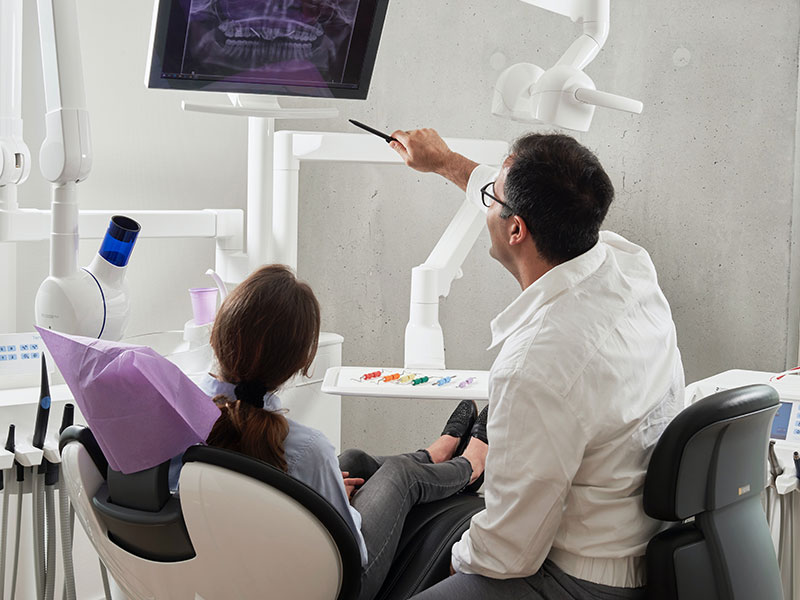Oral and Maxillofacial Surgery

Circumstances where oral surgery may be required:
- Difficult to extract tooth removal
- Broken tooth removal
- Removal of impacted teeth
- Unerupted tooth removal
- Wisdom tooth removal
- Cyst removal
- Dental Implants
The patient must be referred to an oral surgeon by a family doctor or dentist, and in many cases, the assistance of an oral surgeon is required for all interdisciplinary treatments for patients with a medical condition or for a second opinion. However, if the patient does not know if he needs treatment, the opinion of the maxillofacial surgeon should always be sought.
Oral Surgery in the Operating Room
In the case of interventions of greater complexity, longer duration, greater clinical risk, less cooperation on the part of the patient, or proximity to neural or vascular structures, it is advisable to perform oral surgery in the operating room under conscious sedation or under general anaesthesia.
Some surgeries are performed in outpatient surgery, which includes being discharged hours after the end of the procedure, once any postoperative pain or bleeding has stabilized.
On the other hand, other surgeries involve hospitalization with one or more days of postoperative care.
Oral Surgery in Local Anesthesia
Some oral surgeries, depending on the level of complexity and suitability of the patient, may be performed under local anaesthesia, for example by a dentist. Plexus or nerve trunk insertion techniques are used to eliminate the pain associated with the procedure. Operations performed under local anaesthesia are performed on an outpatient basis and do not include postoperative hospitalization, except for complications.
After the Operation:
The behaviour to be followed during the following days is explained to the patient, and adequate therapy is prescribed to control both pain and possible complications. A follow-up visit will be scheduled a few days after surgery to assess the postoperative course and wound healing.
Oral Maxillofacial Surgeon
Dr Samy Darwish
Oral Maxillofacial Surgeon and Periodontist

Dr Samy Darwish, UK Maxillofacial Surgeon leads the surgical team, specialising in Oral Surgery, Implantology, and Periodontics. A member of the Royal College of Surgeons, UK, Master of Science (MSc) with research into dental implants, postgraduate MClinDent in Periodontology and Masters in Restorative Dentist of the Royal College of Surgeons.
